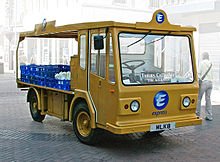bobcat
Well-known Member
- Location
- Northern Calif
Yes, I remember when Lithium Ion batteries came out, wow, what a difference in power tools. It was remarkable what a difference in power and duration. However, they can be tricky and dangerous if not charged properly. But with few exceptions, they have managed to overcome the problems, and I can't imagine living without them now. We will see how this shakes out.Science, research materials improvements for battery technologies are often in science news. However they tend to disappear without one ever reading about followup applied developments. But if the 10x figure is valid, that would be significant. Expect it is another news oversimplification limited due to other complex issues yet to be mentioned.
The momentum behind silicon-anode batteries is in large part driven by their ability to store more energy than lithium-ion batteries of equivalent mass and volume. However, their increased energy density could also pose new, different, and potentially more dangerous risks in the event of a failure.
10x the battery means 10x the charge times.It can take as little as 30 minutes or less to charge a typical electric car (60kWh battery) at a 150kW rapid charging station from empty-to-full. If you use a 7kW public charger, you can expect to achieve the same in under 8 hours and around 3 hours using a 22 kW chargepoint.
True. I guess they have known for some time that using a silicon anode in the battery would greatly extend the range, but it expanded when in use, thus making it unstable. Apparently, they formulated a special coating for the silicon anode, and it prevents the expansion. However, it's still early. Time will tell if it pans out.10 times out equals 10 times in its gota come from somewhere and its a 10 times bigger bomb under the hood, nothings for free. Just saying!
Funny.I read an article years ago that indicated a vehicles range did not need to be significantly greater than the average person’s bladder.


I agree, that’s a great point.Funny.
The main problem with range is that driving a real car you can buy more gas when the tank gets low. With a milkfloat (i.e. EV) when the battery gets low charging is often beyond your reach.
View attachment 374101
I suppose you might carry a 50 foot extension cord and knock on doors as you push it down a road.
Care to share where you got that information?A big problem remains charging. The transmission losses and carrying capacity limits of power lines is a problem and only gets worse with distance.
It's so bad that a lot of Tesla Supercharger stations and the like have big diesel motor-generator sets on site belching smoke to make them work.
While it may be inevitable, more rational alternatives like hybrid gas-electric will probably prevail for a long time yet. Not "plug-in" hybrids, straight hybrids. Far smaller and safer batteries that are lighter and don't have to ride slung underneath where road hazards can do expensive damage fairly trivially. No charging either, just add gasoline.
But none of this is really viable until we get people out of their massive jacked up vehicles. Get rid of the pickups, vans, and SUVs as private vehicles. EVs just make this problem worse with the massive weight of their batteries.
Many HEVs made now don't really have a transmission in them at all. Just a pair of motor generators and a couple of clutchpacks.
An internal combustion engine (ICE) powertrain contains hundreds of moving parts while an EV powertrain only has 20-30 moving parts. EVs are going to put a lot of mechanics out of work!I think it's inevitable that eventually gas engines will be phased out. For one thing, if they ever develop cheaper, safer, and higher capacity batteries, the cars themselves will be cheaper to build. There's no transmission, no smog controls, and electric motors are much simpler than internal combustion engines. And, as supplies of petroleum get more scarce, gasoline will get even more expensive.
